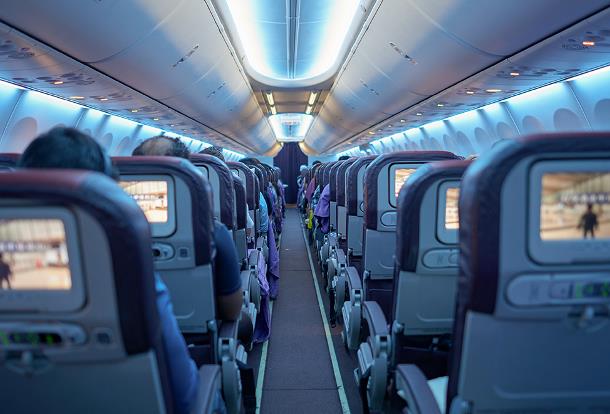What traditional hotel companies once dismissed or derided, some are now welcoming with open arms. But not all hotels are finding it easy to embrace homesharing, or incorporate it into their business plans.
One of the earliest adopters, AccorHotels, has struggled to turn a profit from its $169 million acquisition of luxury home rental platform Onefinestay. Two years after buying it in 2016, AccorHotels most recently wrote off its investments in the business, but remains determined to keep it as a part of its portfolio.
In August 2017, Hyatt Hotels & Resorts, which had previously invested in Onefinestay, tried its luck with another “home meets hotel” platform called Oasis, which AccorHotels had also invested in previously. But by October, 14 months after its initial investment, Hyatt found itself abandoning Oasis, and Oasis found itself a new home with Vacasa, a vacation rental property management company.
Earlier this year, Marriott International embarked on its first foray into private accommodations, partnering with Hostmaker for a pilot in London. That initial experiment is now being expanded to three other cities to encompass a total of more than 340 listings, but that’s still very small in comparison to Marriott’s traditional hotel inventory of more than 6,700 hotels.
And, not surprisingly, even private accommodations pioneers like Airbnb are realizing the importance of having more quality product to offer to consumers, which is why it launched its own hotel-like home listings earlier this year, called Airbnb Plus.
If AccorHotels, Hyatt, Marriott and, presumably, other hotel companies eventually want to find success in homesharing, it’s clear that not all strategies are created equal. Essentially, those different paths boil down to three different options: to buy, to partner, and to build.
The case for/against buying
Ownership has its benefits, but is owning a private accommodation brand a wise business decision? That’s something AccorHotels is currently exploring.
When AccorHotels initially decided to purchase Onefinestay, it was an outlier among hotel companies, many of whom felt that homesharing and hotels were two very separate businesses. At the time, CEO Sebastien Bazin told Skift he and the company were motivated to make the purchase because this is where the industry is headed.
Approximately one year after buying Onefinestay, AccorHotels then purchased two other rental brands — Travel Keys and Squarebreak — and brought them under the Onefinestay brand name, boosting the total number of global rental listings to more than 10,000.
On investing in new business units and startups, Bazin stressed the importance of making sure those units “remain autonomous,” and he added, “We’ve made 12 to 17 investments [as of April 2018], and I really believe that 20 percent of them will not work. Wrong equilibrium team, or idea, or maybe it’s too late. Twenty to 50 percent will be remarkable. A third will be average. But this is the name of the game when you enter into unknown territories.”
In addition to not meeting its profitability goals, Onefinestay has struggled to hold onto senior management. The company has had a total of four different chief executives since 2016: Co-founder and CEO Greg Marsh left in September 2016, months after Accor bought Onefinestay. Marsh’s successor, co-founder Evan Frank, left in September 2017. Javier Cedillo-Espin, who succeeded Frank, left this summer to become CEO of a competing serviced apartment platform.
In October, AccorHotels deputy CEO and CFO Jean-Jacques Morin said of Onefinestay and John Paul: “It is the usual story about how a new business is being integrated in the company and as probably being too greedy and what we try to do with that company and integrating them too fastly, and pushing them into too many geographies and too many directions.’
When Skift interviewed Bazin in April, he also alluded to opportunities for more synergies between Onefinestay and AccorHotels’ traditional hotel business.
“The sharing economy is labor-intensive,” Bazin said. “You need people on the ground to provide all the service. Airbnb has been doing it in the commodity space — they have been outsourcing all those services. I have the existing labor force and network, so I am providing all the synergies that exist. Anyone who does not have labor on the ground, it will cost them a lot.”
Most recently, it appears Airbnb has taken note, too. On December 11, the company acquired French rental services provider Luckey Homes for an undisclosed sum, signaling the importance of having on-the-ground service providers to manage home listings and the possibility that it may enter the property management space more directly than ever before.
The case for/against partnering
The partnership route is one that was most recently piloted by Hyatt and Marriott, but both companies have seen different results from their respective experiments. Generally speaking, however, partnering with a private accommodations brand poses the least amount of risk for hotel companies wanting to get into the space.
“A partnership model like the one that Marriott has with Hostmaker makes sense for Marriott in terms of the economics of distribution,” said Makarand Mody, assistant professor of hospitality marketing for the Boston University School of Hospitality Administration. “From a pure management standpoint, it’s very hands-off actually. Hostmaker does the operations side of things and Marriott has agreed on certain brand standards in terms of Tribute Portfolio Homes that they will execute.”
For Marriott, the pilot continues to be a “learning experience,” said Adam Malamut, Marriott’s chief customer experience officer. “The key thing we’re learning here is that we have a unique customer experience and base that’s complementary to our hotels, and we don’t’ see this as direct competition to our hotels in those markets.”
Hyatt, too, has experimented with homesharing at least twice before by adopting a partnership route. Once it was with Onefinestay, and most recently with Oasis. In the former case, Onefinestay was later purchased by AccorHotels and in the latter, Oasis was bought by Vacasa, a property management company.
In August, Hyatt revealed it had to take a $22 million impairment charge for its minority investment in Oasis, and three months later, Oasis was sold to Vacasa, where, presumably, it will help Vacasa increase its inventory.
During Hyatt’s second-quarter earnings call, then CFO Patrick Grismer attributed the problems to “the scalability of that business and the synergies to be realized through the alliance with Hyatt” as well as “shortfalls in operating cash flow.”
Most of the industry experts whom Skift spoke to for this story believed that one of the primary reasons why Oasis was struggling had to do with the legal and geographical challenges related to its supply; simply put, Oasis may have expanded too quickly in too many places.
There were also issues in terms of guest expectations, as well as the fact that Oasis was not bookable via the global distribution system (GDS) — the system that connects hotels and airlines with online booking sites and travel agents.
In addition to the economic problems noted by Grismer, Ahmed said another challenge had to do with differing financial models.
The case for/against building a short-term rental business
Madrid-based Room Mate Hotels was way ahead of the curve when it launched Be Mate Apartments in 2014. Room Mate founder and president Kike Sarasola was inspired to launch it when his fellow hoteliers asked him to lead the fight against Airbnb in Spain.
Instead, Sarasola had other ideas. “It was a brilliant idea. I thought it was the future,” he said, of short-term urban rentals. With Be Mate Apartments, Sarasola wanted to “do apartments with hotel services at affordable prices.”
What Be Mate does is handle full management of leased or contracted apartment buildings and units located in or around existing Room Mate Hotels properties. On-the ground teams handle housekeeping and maintenance, and Be Mate guests can access amenities from nearby hotels.
“Our hotels are always available, so if the clients ever need any services, we have concierge service that helps them, but our hotels are also like safety nets for the apartments,” Sarasola said.
Not surprisingly, Sarasola faced touch criticism from his peers when he launched Be Mate.
Since launching Be Mate in 2014 in Madrid, the concept has expanded to 10 cities worldwide with a total of 10,000 listings, 600 of which are exclusive to Be Mate.
Is there a formula for success?
While the hotel industry’s involvement in homesharing is still relatively new, it’s clear that if a more traditional hotel company wants to extend into this space, it will contend with many of the same challenges that some of the homesharing pioneers, Airbnb included, are also dealing with, as is the case with Airbnb Plus.
They are, as follows: maintaining brand standards and quality control; utilizing existing resources and labor force to operate the units; making sure there are some loyalty tie-ins; and ensuring that corporate clients and travel agencies can easily book these accommodations.
At the moment, at least, it’s clear that everyone — from Airbnb and Marriott to AccorHotels and Hyatt — is in the process of figuring it all out, and they all need to, if they want to continue to be successful five, 10, 15, or 20 years from now, because it’s what consumers want.
“We all know that, in 2012, the readiness for a hotel guest to book private accommodations was only 33 percent,” said Lehmann. “In 2018, it’s close to 70 percent. It’s clear that hotels need to get their heads around where people are considering staying when they travel, and it’s not just hotels anymore.”
Read Original Article




